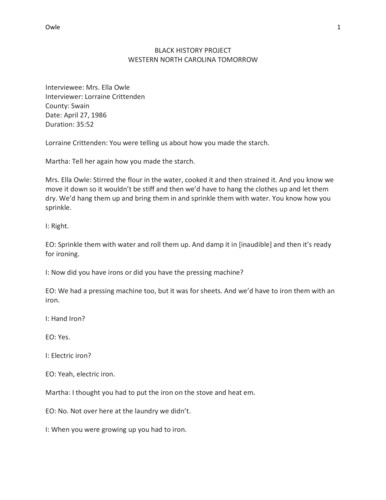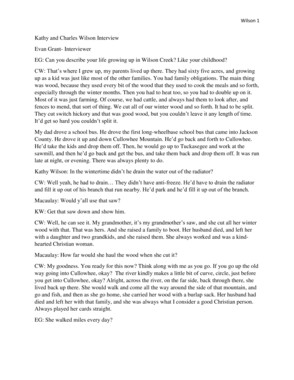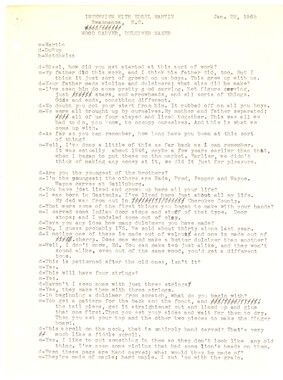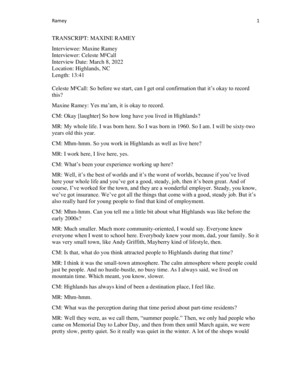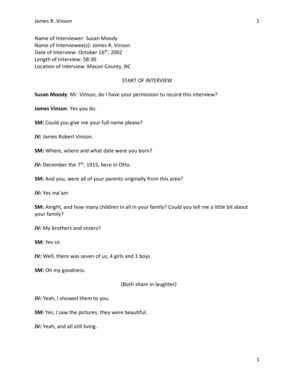Western Carolina University (20)
View all
- Canton Champion Fibre Company (2308)
- Cherokee Traditions (292)
- Civil War in Southern Appalachia (165)
- Craft Revival (1942)
- Great Smoky Mountains - A Park for America (2766)
- Highlights from Western Carolina University (430)
- Horace Kephart (941)
- Journeys Through Jackson (154)
- LGBTQIA+ Archive of Jackson County (85)
- Oral Histories of Western North Carolina (314)
- Picturing Appalachia (6772)
- Stories of Mountain Folk (413)
- Travel Western North Carolina (160)
- Western Carolina University Fine Art Museum Vitreograph Collection (129)
- Western Carolina University Herbarium (92)
- Western Carolina University: Making Memories (708)
- Western Carolina University Publications (2283)
- Western Carolina University Restricted Electronic Theses and Dissertations (146)
- Western North Carolina Regional Maps (71)
- World War II in Southern Appalachia (131)
University of North Carolina Asheville (6)
View all
- Allanstand Cottage Industries (62)
- Appalachian National Park Association (53)
- Bennett, Kelly, 1890-1974 (1388)
- Berry, Walter (76)
- Brasstown Carvers (40)
- Carver, George Washington, 1864?-1943 (26)
- Cathey, Joseph, 1803-1874 (1)
- Champion Fibre Company (233)
- Champion Paper and Fibre Company (297)
- Cherokee Indian Fair Association (16)
- Cherokee Language Program (22)
- Crowe, Amanda (40)
- Edmonston, Thomas Benton, 1842-1907 (7)
- Ensley, A. L. (Abraham Lincoln), 1865-1948 (275)
- Fromer, Irving Rhodes, 1913-1994 (70)
- George Butz (BFS 1907) (46)
- Goodrich, Frances Louisa (120)
- Grant, George Alexander, 1891-1964 (96)
- Heard, Marian Gladys (60)
- Kephart, Calvin, 1883-1969 (15)
- Kephart, Horace, 1862-1931 (313)
- Kephart, Laura, 1862-1954 (39)
- Laney, Gideon Thomas, 1889-1976 (439)
- Masa, George, 1881-1933 (61)
- McElhinney, William Julian, 1896-1953 (44)
- Niggli, Josephina, 1910-1983 (10)
- North Carolina Park Commission (105)
- Osborne, Kezia Stradley (9)
- Owens, Samuel Robert, 1918-1995 (11)
- Penland Weavers and Potters (36)
- Roberts, Vivienne (15)
- Roth, Albert, 1890-1974 (142)
- Schenck, Carl Alwin, 1868-1955 (1)
- Sherrill's Photography Studio (2565)
- Southern Highland Handicraft Guild (127)
- Southern Highlanders, Inc. (71)
- Stalcup, Jesse Bryson (46)
- Stearns, I. K. (213)
- Thompson, James Edward, 1880-1976 (226)
- United States. Indian Arts and Crafts Board (130)
- USFS (683)
- Vance, Zebulon Baird, 1830-1894 (1)
- Weaver, Zebulon, 1872-1948 (58)
- Western Carolina College (230)
- Western Carolina Teachers College (282)
- Western Carolina University (1794)
- Western Carolina University. Mountain Heritage Center (18)
- Whitman, Walt, 1819-1892 (10)
- Wilburn, Hiram Coleman, 1880-1967 (73)
- Williams, Isadora (3)
- Cain, Doreyl Ammons (0)
- Crittenden, Lorraine (0)
- Rhodes, Judy (0)
- Smith, Edward Clark (0)
- Appalachian Region, Southern (2569)
- Asheville (N.C.) (1923)
- Avery County (N.C.) (26)
- Blount County (Tenn.) (161)
- Buncombe County (N.C.) (1672)
- Cherokee County (N.C.) (283)
- Clay County (N.C.) (555)
- Graham County (N.C.) (233)
- Great Smoky Mountains National Park (N.C. and Tenn.) (519)
- Haywood County (N.C.) (3524)
- Henderson County (N.C.) (70)
- Jackson County (N.C.) (4694)
- Knox County (Tenn.) (25)
- Knoxville (Tenn.) (12)
- Lake Santeetlah (N.C.) (10)
- Macon County (N.C.) (420)
- Madison County (N.C.) (212)
- McDowell County (N.C.) (39)
- Mitchell County (N.C.) (132)
- Polk County (N.C.) (35)
- Qualla Boundary (981)
- Rutherford County (N.C.) (76)
- Swain County (N.C.) (2115)
- Transylvania County (N.C.) (270)
- Watauga County (N.C.) (12)
- Waynesville (N.C.) (84)
- Yancey County (N.C.) (72)
- Aerial Photographs (3)
- Aerial Views (60)
- Albums (books) (4)
- Articles (1)
- Artifacts (object Genre) (228)
- Bibliographies (1)
- Biography (general Genre) (2)
- Cards (information Artifacts) (38)
- Clippings (information Artifacts) (191)
- Crafts (art Genres) (622)
- Depictions (visual Works) (21)
- Design Drawings (1)
- Drawings (visual Works) (184)
- Envelopes (73)
- Facsimiles (reproductions) (1)
- Fiction (general Genre) (4)
- Financial Records (12)
- Fliers (printed Matter) (67)
- Glass Plate Negatives (381)
- Guidebooks (2)
- Internegatives (10)
- Interviews (815)
- Land Surveys (102)
- Letters (correspondence) (1013)
- Manuscripts (documents) (618)
- Maps (documents) (177)
- Memorandums (25)
- Minutes (administrative Records) (59)
- Negatives (photographs) (5835)
- Newsletters (1285)
- Newspapers (2)
- Occupation Currency (1)
- Paintings (visual Works) (1)
- Pen And Ink Drawings (1)
- Periodicals (193)
- Personal Narratives (10)
- Photographs (12976)
- Plans (maps) (1)
- Poetry (6)
- Portraits (4533)
- Postcards (329)
- Programs (documents) (151)
- Publications (documents) (2236)
- Questionnaires (65)
- Scrapbooks (282)
- Sheet Music (2)
- Slides (photographs) (402)
- Songs (musical Compositions) (2)
- Sound Recordings (796)
- Specimens (92)
- Speeches (documents) (15)
- Tintypes (photographs) (8)
- Transcripts (322)
- Video Recordings (physical Artifacts) (23)
- Vitreographs (129)
- Text Messages (0)
- A.L. Ensley Collection (275)
- Appalachian Industrial School Records (7)
- Appalachian National Park Association Records (336)
- Axley-Meroney Collection (2)
- Bayard Wootten Photograph Collection (20)
- Bethel Rural Community Organization Collection (7)
- Blumer Collection (5)
- C.W. Slagle Collection (20)
- Canton Area Historical Museum (2110)
- Carlos C. Campbell Collection (282)
- Cataloochee History Project (64)
- Cherokee Studies Collection (4)
- Daisy Dame Photograph Album (5)
- Daniel Boone VI Collection (1)
- Doris Ulmann Photograph Collection (112)
- Elizabeth H. Lasley Collection (1)
- Elizabeth Woolworth Szold Fleharty Collection (4)
- Frank Fry Collection (95)
- George Masa Collection (173)
- Gideon Laney Collection (452)
- Hazel Scarborough Collection (2)
- Hiram C. Wilburn Papers (28)
- Historic Photographs Collection (236)
- Horace Kephart Collection (861)
- Humbard Collection (33)
- Hunter and Weaver Families Collection (1)
- I. D. Blumenthal Collection (4)
- Isadora Williams Collection (4)
- Jesse Bryson Stalcup Collection (47)
- Jim Thompson Collection (224)
- John B. Battle Collection (7)
- John C. Campbell Folk School Records (80)
- John Parris Collection (6)
- Judaculla Rock project (2)
- Kelly Bennett Collection (1407)
- Love Family Papers (11)
- Major Wiley Parris Civil War Letters (3)
- Map Collection (12)
- McFee-Misemer Civil War Letters (34)
- Mountain Heritage Center Collection (4)
- Norburn - Robertson - Thomson Families Collection (44)
- Pauline Hood Collection (7)
- Pre-Guild Collection (2)
- Qualla Arts and Crafts Mutual Collection (12)
- R.A. Romanes Collection (681)
- Rosser H. Taylor Collection (1)
- Samuel Robert Owens Collection (94)
- Sara Madison Collection (144)
- Sherrill Studio Photo Collection (2558)
- Smoky Mountains Hiking Club Collection (616)
- Stories of Mountain Folk - Radio Programs (374)
- The Reporter, Western Carolina University (510)
- Venoy and Elizabeth Reed Collection (16)
- WCU Gender and Sexuality Oral History Project (32)
- WCU Mountain Heritage Center Oral Histories (25)
- WCU Oral History Collection - Mountain People, Mountain Lives (71)
- WCU Students Newspapers Collection (1744)
- Western North Carolina Tomorrow Black Oral History Project (69)
- William Williams Stringfield Collection (2)
- Zebulon Weaver Collection (109)
- African Americans (390)
- Appalachian Trail (35)
- Artisans (521)
- Cherokee art (84)
- Cherokee artists -- North Carolina (10)
- Cherokee language (21)
- Cherokee pottery (101)
- Cherokee women (208)
- Church buildings (170)
- Civilian Conservation Corps (U.S.) (110)
- College student newspapers and periodicals (1830)
- Dams (107)
- Dance (1023)
- Education (222)
- Floods (61)
- Folk music (1015)
- Forced removal, 1813-1903 (2)
- Forest conservation (220)
- Forests and forestry (1184)
- Gender nonconformity (4)
- Great Smoky Mountains National Park (N.C. and Tenn.) (181)
- Hunting (38)
- Landscape photography (25)
- Logging (118)
- Maps (83)
- Mines and mineral resources (8)
- North Carolina -- Maps (18)
- Paper industry (38)
- Postcards (255)
- Pottery (135)
- Railroad trains (71)
- Rural electrification -- North Carolina, Western (3)
- School integration -- Southern States (2)
- Segregation -- North Carolina, Western (5)
- Slavery (5)
- Sports (452)
- Storytelling (244)
- Waterfalls -- Great Smoky Mountains (N.C. and Tenn.) (66)
- Weaving -- Appalachian Region, Southern (280)
- Wood-carving -- Appalachian Region, Southern (328)
- World War, 1939-1945 (173)
Interview with Ella Owle
Item
Item’s are ‘child’ level descriptions to ‘parent’ objects, (e.g. one page of a whole book).
-
-
Owle 1 BLACK HISTORY PROJECT WESTERN NORTH CAROLINA TOMORROW Interviewee: Mrs. Ella Owle Interviewer: Lorraine Crittenden County: Swain Date: April 27, 1986 Duration: 35:52 Lorraine Crittenden: You were telling us about how you made the starch. Martha: Tell her again how you made the starch. Mrs. Ella Owle: Stirred the flour in the water, cooked it and then strained it. And you know we move it down so it wouldn’t be stiff and then we’d have to hang the clothes up and let them dry. We’d hang them up and bring them in and sprinkle them with water. You know how you sprinkle. I: Right. EO: Sprinkle them with water and roll them up. And damp it in [inaudible] and then it’s ready for ironing. I: Now did you have irons or did you have the pressing machine? EO: We had a pressing machine too, but it was for sheets. And we’d have to iron them with an iron. I: Hand Iron? EO: Yes. I: Electric iron? EO: Yeah, electric iron. Martha: I thought you had to put the iron on the stove and heat em. EO: No. Not over here at the laundry we didn’t. I: When you were growing up you had to iron. Owle 2 EO: Yeah, oh yeah. We had a big fireplace. We’d set them up. You know how to set up these old fashioned irons. Set them up and let them get hot. I: You had to have more than one? EO: Yeah. Martha: [inaudible] EO: Yeah, sometimes there’s six or seven irons setting up the fireplace. I: Did you starch your clothes at home too? EO: Mhmm I: The iron board was homemade too? EO: No, we ironed on the table. I: But at home what did you iron on? EO: Table. I: On the table at home. EO: Put it down on the table and just keep turning it in places it’s wrinkled. I: But you covered the table with something, didn’t you? EO: Yes. I: What did you cover it with? EO: Just an old sheet. Put an old sheet on there. I: Would you say laundry was the best job you ever had? EO: Yeah, the best job I ever had, but it wasn’t the best paying job. I: Did you work anywhere else after you left the laundry? EO: Well, here and yonder. I: But nowhere for any length of time? Owle 3 EO: No. Martha: I remember you used to work with Shelly, remember that hotel the used to be down there, the Railroad [Inn]. EO: Miss Shelley. Martha: Yeah, you know what was the name of that man, his wife’s mother. EO: I don’t remember working there. Martha: They had a hotel. I remember you used to work down there and you’d bring home what’s called [cooking iron]. [leftovers]. I: Oh, that’s what they call leftovers? I didn’t ever know that. Martha: Then she had worked for him every week. [inaudible story being told] I: Do you remember anything else about your life, Miss Ella? EO: I can't remember like I used to. I: Well, what about during the times you were raising your children. How many children do you have? EO: Two. I: You had two? EO: There was two. I: Miss Martha and EO: Noah. I: Noah? Did he die? EO: Yes. I: Was he a young man? Eighteen years old when he died? EO: Eighteen years old. I: What happened to him? Owle 4 EO: I don't know. Martha: [inaudible story]. I: Are you the older than Noah? Martha: One year older. I: So you had more education than most people in Bryson City. Martha: [inaudible] I: Well what did Allen do for a living here in Bryson City? EO: He worked in timber all the time. Saw logs on Sheppard’s Creek. Saw logs. I: Now is this on his property or someone else’s? EO: His. I: Did he sell the timber? EO: Yeah. I: That’s how he made the living for the family? Did you have land up on Sheppard’s Creek? EO: It’s government property. It’s really not mine. It’s tribal. I: do you do anything with that land today? EO: Do I do anything with it? Well when I can. Have things going. I: what do you have done? EO: Have timber get out if I can get anybody to get it out. Can’t get anybody to do nothing. Martha: [inaudible] I: Miss Ella, do you remember the first time you saw a car? EO: No I can’t. I can’t tell you whoop about it cause I can’t remember. I: Did you ever own a car? Owle 5 EO: Lord no. I ain’t never owned [inaudible] [laugh] I: Did you ever go on a train ride? EO: Yeah I rode the train. I’ve rode the train a lot of times. I: You rode the train to different places you wanted to go. EO: Yeah. I: What’s the farthest you’ve ever been away from Bryson City? Martha: [inaudible] remember when you lived in Tennessee and Grandpa worked over [inaudible]. I: Now is this Grandpa Powell or Owle? EO: That was my daddy that worked in Tennessee. Martha: [inaudible] I: Is there anything else about your life that you want to share with us? EO: No. I can't tell you all about my life. I: Oh, I bet that would be interesting, Miss Ella [laugh]. What did you do for fun? EO: I didn't have no fun. I: You must have played sometime. EO: Always had to be on the go. I: Going where? EO: Just here and yonder. Wandering around. I: What were you looking for when you were wandering? EO: Wondering one time where to go the next time [ laugh]. Owle 6 Martha: [inaudible] I: Do you remember plaiting the pole on May Day? EO: Yeah. I: Tell us about that. EO: You know how they fix it up and have them strings and we didn't have no kind of music. French Harps. You know those French harps? I: Yes. EO: They didn't know no tunes to play only "Fly in the Buttermilk Churn Right On." (Everyone laughs) We'd go in and out, in and out, in and out and we'd plait that pole plum down you know just as low as we could go. It was pretty. I: What did you plait it with? EO: Strings. I: Strings? EO: Uh-huh. You know where you go in and out, in and out, in and out. I: Where did you get the string? EO: Well, just tear up any old thing. I: You'd tear up material. EO: Yeah. Sheets. I: Now, was the material already dyed? EO: Yeah. I: I thought they had to dye, like if you wanted pink you had to dye it. Find some root or something. EO: We never did dye nothing. I: It was already that color? Owle 7 EO: Yeah. I: That was a fun day, wasn't it? EO: Oh, yeah, it was fun. I know Martha: [inaudible] EO: I can't think of his name to save my life. Anyway, he'd play that old French harp first. I: Now would the boys and the girls plait the May Pole? EO: All of us. I: Was it kind of a party? Did you have things to eat? EO: No. I: You just danced to the French harp? EO: It was in school, you know, and that was the last day and you had to do something. I: You didn't have anything special to drink or eat? EO Uh-huh. I: You celebrated the end of school by plaiting the May Pole? EO Yeah. I: Well, after the end of school it was summer. What did you do in summer? EO: I don't know. Just run around, I guess. I: Nobody had chores? EO: Did chores. I: Working in the garden? EO: Yeah. On the farm. I: What was your favorite job on the farm? Owle 8 EO: Hoeing corn. I: You liked to hoe corn? EO: I didn't like to but I had to. I: It was the lesser of all the evils. What did you do with corn? EO: Feed it to the horse, cows, hogs. I: Did you ever make meal out of it? EO: Yeah. I: How did you make meal from the corn? EO: We'd take it the mill. They's a corn mill up here on Cripple Creek. Corn mill up here on Cripple Creek now, or was if it ain't tore it down. We'd take it and they had a big old topper they put it in and corn run down there and grind and meal'd come out down here. A little trough that come down. I: What did you put the meal in? Bags? EO: Uh-huh. I: What kind of bags? EO: Sacks. I: Sacks. Now was the meal white or yellow or what? EO: It was white. I: White meal, white corn meal? EO: Yeah, just like the corn meal now. I: Did you have to pay the people to thrash your corn? EO: Well, they'd take out, you know, a toll. So much, maybe a gallon or two gallons. I: Oh, so they would take part of your corn as payment? EO: Uh-huh. Owle 9 I: That was interesting. What else did you do? EO: Wooooo, I couldn't begin to say. I: Oh, we have all afternoon. EO: I can't think like I used to. My mind gets worse and worse. I: Well, we can take our time. Did you ever ride horses? EO: Yeah, I've rode horses. I: Did you own horses? EO: No, we never did own any. I: How did you plow the garden? Did you make the garden with a hoe? EO: Yeah, see just take and make rows and plant it and then when it come up you'd go through there and chop all them weeds and everything out and it just as clean. I: Well where did you get your water from, Miss Ella? EO: Water? I: Water. EO: They's plenty of branches, you know, and springs that come down. They's plenty of water. I: Were the springs near your house? EO: Yeah. Some of 'em was right at the house and some was off near the creek. I: Was one child responsible for bringing water to the house? EO: No, just which ever one could get a hold of the bucket I: Was that considered a fun job or a hard job? Was that considered a fun job, going to the spring to get water. EO: Yeah. I: Spring water was good, wasn't it? Owle 10 EO: Yeah. We didn't have no trouble with our water. I: I can't imagine you carrying enough water to water a garden. EO: We didn't carry water to water the garden. I: Well, how did you water the garden? EO: We didn't water it. We just let it grow itself and if it growed, it growed and if it didn't, it didn't. I: Well if it didn't grow, where did you get your food? EO I reckon just like anybody else, get out and get it the best way we could. I: Did it get the blight? EO: Yeah. I: Do you remember that happening often? EO: [inaudible] I: What about your clothing? Where did you get your clothing? EO: Oh, I don't know. I: Do you remember spinning? Spinning wheel? EO: No. I: Do you remember the first time you saw a sewing machine? EO: No. I: Were all your clothes made by hand at home? EO: Yeah. I: They were made at home? EO: Yeah. Owle 11 I: Were the stitches really small. EO: Uh-huh. I: I bet those clothes lasted a long time. EO: Yeah, lasted longer than they do now. I: Why do you think that was so? EO: Well these machines you know, they don't sew good like you sew by hand. I: More quality, isn't it? EO: Yeah. I: What about doctors? What happened if you were ill? EO: I don't know. Just get out and hunt herbs, I reckon. I: So, each family treated itself by natural herbs? Do you ever remember going to the doctor as a child? EO: No, I don't. I: So, any time you were sick, your parents just found the herbs? In the woods? EO: Yeah. I: Your parents just found the herbs in the woods to give you? EO: Yeah and they'd get out, you know, and in the fall before everything died out, died down and they'd find this black [inaudible] root and [raw pine bark] [metalwort] [martley] stuff like that and bring it in in sack fulls. Well if you got sick, they knew just what to get to give you. Make tea out of it. They'd make tea and in just a little while, we was up a goin'. If times was now like they was back then, they 'd be more happy people in this world. I: You think so? EO: I know so. I: Why do you think that people today are unhappy? Owle 12 EO: Well yeah, they's so much new stuff. I don't know, just new stuff go in ' on. People don't think back. They don't think back like they ought to or like they used to. Some of 'em, I don't say that they're all that way now but there's some of 'em just for a big time, a good time. They don't study livin' and they don’t study when they have to come to die. They just study for a big time right now. I: Right now. EO: Right now, a big time, but, one of these days. I don't know how long, how soon the Lord's gonna show 'em the way and it might be too late. I: Might be too late. Well what would you tell people today so that we could live to be as young as you are? EO: As young as I am? I: Yeah. EO: Lord just like I was tellin' Martha the other day, I just like a few steps being a hundred-year-old, over the hill. I: Over the hill? EO: Yeah. I: Now-a-days we say you 're over the hill at thirty. Back then you were in your prime. EO: If I live. My birthday is the thirty-first of August and if I live to see that, I'll be all right. I'll be happy 'cause I know it ain't but a few steps over the hill. I: Well, what would you tell us so that we could live that long? EO: Well, I can't tell you. Just be good and pray and look to the Lord. I: Well, do you think that your hard work had anything to do your living this long. EO: No, it ain't hard work that does it. It's not hard work 'cause I'll tell you work ain't gonna hurt nobody. I: Do you think it helped you live this long? EO: Well I'll tell you, you know, you to live and walk in faith that God will take care of you and He moves and He moves in a mischievous way. I've studied. I lay here and I study. I lay here last Owle 13 night. I don't sleep none hardly at night. I sleep a little during the day after some of 'em comes in but I won't offer to go to sleep when they all gone. I: Why not? EO: I'm scared somebody will come in and kill me. Of course, they may not but people is gettin' so mean you don't know what they'll do. They come and come to the door and act just all nice and good and everything and stab you to death. I: Well, do you think people are as neighborly as they used to be? EO: No. I: Well, tell me about how the neighbors were when you were growing up. EO: Well, the way they was when I was growin' up. Come back over here where you can hear me. The way they was when I was growin' up, if you got down sick, the women would come in clean up your house, do your wash in', fix you something or another to eat, and the men would come if you had to have wood they'd get out and get your wood, stack it up and everything and that was the last of it. No more was said about it. I: The neighbors didn't ask for anything in return? EO: No and the women they'd come so till you got up and got well to where you could get out and go, they 'd come do your cookin', washin', and everything and the way they'd do the iron in', sometimes you'd get 'em ironed and sometimes you wouldn't, you'd just fold 'em up you know, fold 'em up even and put 'em in a chair or something or another and set down on 'em. I: To press the clothes? EO: Yeah (everybody laughs). I: Did it work? EO: Yeah. I: I'll think I'll try that. I don't like to iron (laughs). What about childbirth? Did you have hospitals? Did you go to hospitals to have your children? EO: No. No. You 'd have 'em right there at home. You'd have what they called a midwife. I: Midwife? EO: She'd come and deliver that child. She 'd stay right there till that neighbor come. Owle 14 I: She would stay at your home. How did you pay her? EO: Nothing. I: Nothing? Just out of the goodness of her heart? EO: There aren’t many people like that today. No, they ain't. I don't think they's many. I: Well we talked about childbirth, what about funerals? EO: Well, I don't remember about that. I don't remember about that. I just remember if one died, you'd take it on and bury it. I: Did the people in the community have wakes when a person died? EO: Yeah. I: Tell me what that was like. EO: I don't know hardly. I: Did they take the body to the house? EO: I can't remember. I guess they did. I: Was there a cemetery or were people buried on home land? EO: No, they's a cemetery. I: Was there a cemetery just for black people? EO: No, it was for everybody. I: So, years ago, the cemetery was for black and white? EO: Well, that's the way it is now. I: Somewhere during the years, they became separate. Do you remember that? EO: Like over here at this cemetery. I: Remember Watkins? Owle 15 EO: Watkins Cemetery? I: Right. EO: Yeah. They's blacks and whites all buried in there. I: They're all buried but wasn't there a difference made? EO: Not as I know of. My mother was buried over there and my Pa. My sister and my nephew. They's all buried over there. I: If you wanted to, could you bury your family on your own land? EO: I guess you could. I: But your family didn't? Do you remember the first time you every attended a funeral? EO: No, I can't. I just can't remember. I: What else can you remember about your life that I haven't asked? EO: [inaudible]
Object
Object’s are ‘parent’ level descriptions to ‘children’ items, (e.g. a book with pages).
-
Ella Owle is interviewed by Lorraine Crittenden on April 27, 1986 as a part of the Western North Carolina Tomorrow Black Oral History Project. Owle was born in 1894 in Swain County. She talks about the chores she and her siblings did as children including laundry and farming. She recalls May Day celebrations, cemeteries, and gathering herbs for illnesses.
-
